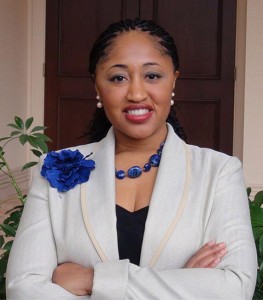 Progressive Voice is a weekly opinion column. The views and opinions expressed in the column are those of the individual authors and do not necessarily reflect the views of their organizations or ARLnow.com.
Progressive Voice is a weekly opinion column. The views and opinions expressed in the column are those of the individual authors and do not necessarily reflect the views of their organizations or ARLnow.com.
By Krysta Jones
A few years ago I had the pleasure of being invited to serve on the Women’s Monument Commission of Virginia, which is leading awareness and fundraising efforts for a first of its kind monument on the Capitol Grounds in Richmond. The monument will honor 12 women who have made an impact in Virginia.
Coincidentally, the monument is scheduled for completion just shy of 2020, when we will celebrate the centennial of the 19th Amendment that gave women the right to vote. There are several initiatives around the country to highlight and share years of research exploring how a movement of a diverse group of women fighting for the right to vote succeeded in securing the right to vote – primarily for white women.
After the Women’s March in January 2017, which galvanized a new energy and birthed a growing crop of activists, I have been even more aware of divergent movements within the women’s movement. While some saw the march as an opportunity to celebrate all women, others were disappointed with the lack of diversity among the organizers and the attendees.
It is no surprise that the “women’s movement” has been historically been run by white females, often older, who have become the stalwarts and spokespeople for what it means to fight for equal pay, reproductive rights, affordable childcare, or other traditional women’s issues.
As I have worked to motivate more women from all backgrounds to take an active interest and leadership role in all fields, and advocate for women’s issues, I have always noticed that many don’t see women like themselves on the front lines. While it is true that there is something special about seeing yourself in those who lead, it’s even more important for the overall good and progress of society to build relationships and learn from those who are different from ourselves.
The Women’s Monument Commission of Virginia seeks to do just that. The Commission selected women to honor with a view toward diversity of races, professional backgrounds, ages, time periods and geography. A major goal was to help us move past traditional stereotypes of what it means to be a woman leader.
When people walk up to the monument and read or hear about each statue, we want them to see some of themselves — as well as people different from themselves — as they reflect on the accomplishments of the women honored and at the same time reflect on what they can aspire to in their own lives.
Some of the women featured in the monument include:
Maggie L. Walker, who was one of the great entrepreneurs of her time and, with the founding of the St. Luke Penny Savings Bank in Richmond, the first woman to charter a bank in the United States.
Cockacoeske, who was a Pamunkey chief and an astute politician and ruled the Pamunkey for 30 years until her death in 1686. As Chief, she signed the Treaty of Middle Plantation on May 29, 1677, restoring important rights to native Virginia tribes and commemorated in an annual ceremony among the chiefs of the Mattaponi and Pamunkey tribes and the Governor of Virginia during Thanksgiving week in November.
Laura Lu Copenhaver, who as Director of Information of the Virginia Farm Bureau Federation helped expand southwestern Virginia’s agricultural economy by emphasizing cooperative marketing of farm products to improve the standard of living for farm families.
On October 4 at the Woman’s Club of Arlington, I will moderate a conversation with former State Senator (and former Arlington County Board chair) Mary Margaret Whipple about her leadership journey, her service as Commission vice chair, and stories of the women who will be featured with statues as part of the monument.
My hope is that we can encourage additional dialogue in Arlington in advance of the completion of the monument to inspire an appreciation and celebration of the true power of all women.
Krysta Jones is founder and CEO of the Virginia Leadership Institute and former Chair of the Arlington Commission on the Status of Women. In 2014, Krysta was named by Leadership Arlington as a Top 40 Leaders Under 40 awardee.

